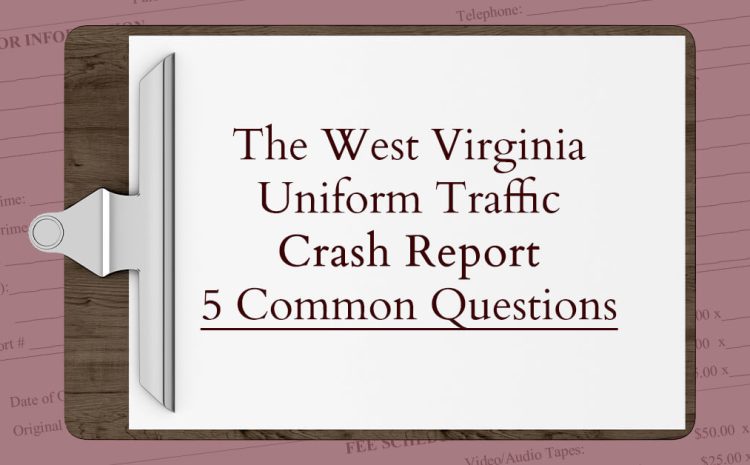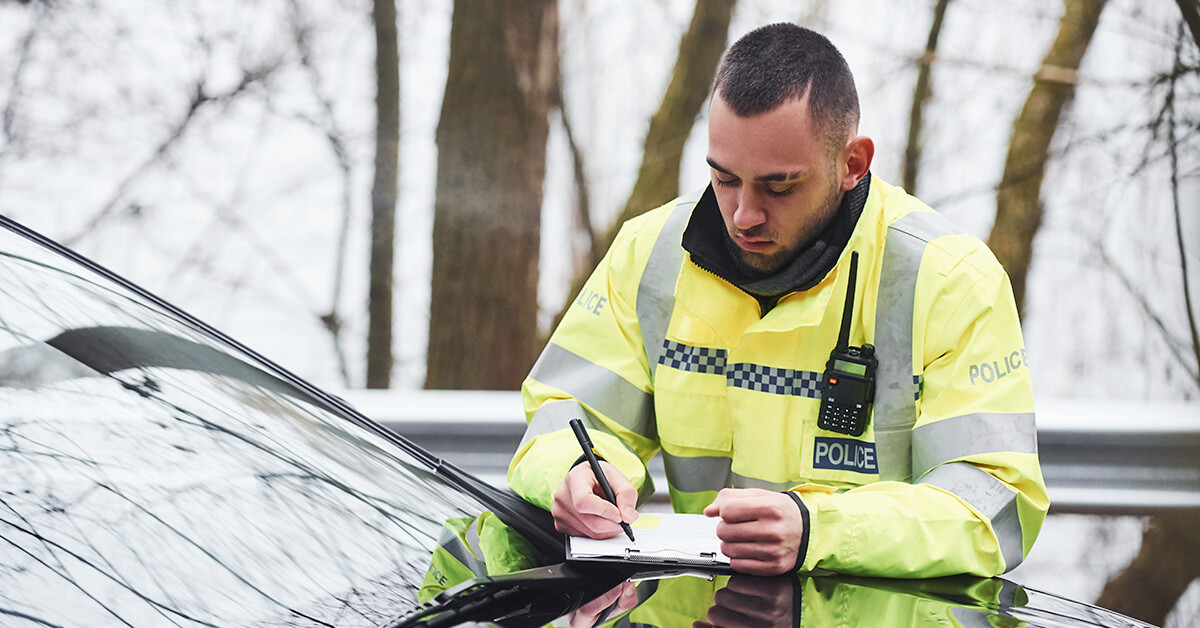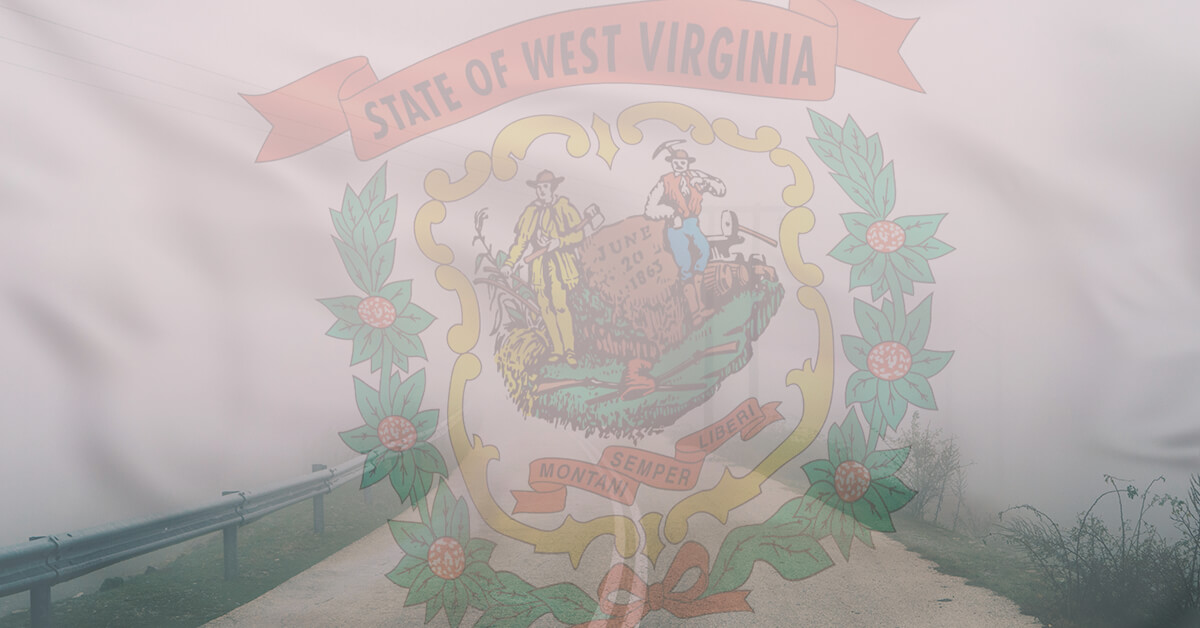
Throughout my 25 years of practice as a car accident lawyer with Gold, Khourey and Turak, I have helped many clients obtain fair compensation for their West Virginia car accident claims. I have recovered millions of dollars for my clients injured in car accidents. I always rely on the accident or crash report when investigating claims. In West Virginia, this is officially called the West Virginia Uniform Traffic Crash Report. This report contains a lot of information and can be confusing. In this blog, I hope to answer some of the most common questions about West Virginia crash reports. If you have been injured in an accident that wasn’t your fault and have questions, please contact my office at (304) 845-9750 or chat with us 24 hours a day. Our consultations are always free.
West Virginia Crash Reports Provide Important Information
Any time a West Virginia Police agency investigates a traffic accident, they complete a West Virginia Uniform Traffic Crash Report. These reports serve several important functions.
First, they provide a detailed record of the people involved, how the wreck happened, and who is at fault. The report is a record the police officer can rely upon should a dispute arise between the involved drivers or their insurance companies regarding some aspect of the West Virginia car accident.
It is also an important record should the police officer testify in an ensuing criminal matter and need to recall the accident’s specifics.
Lastly, the reports provide important statistical information to the State regarding accidents, causes, seatbelt usage, and injuries. These statistics play an important part in helping improve injury prevention methods and identifying potential trends such as the year-to-year number of DUI related accidents.
Why didn’t the police officer give a ticket to the at-fault driver?
This is easily the most common question I get. The police officer is not required by law to issue a citation and typically has some discretion in this regard. I have found that some agencies are more inclined to issue a citation while others might give a warning. While I rarely know the specific reason why a police officer chooses not to issue a citation in a particular crash, I often suspect some officers are reluctant to further punish someone who just caused an accident. I also think the severity of the offense plays a role. You’re much more likely to receive a citation if you run a red light or go left of center and cause an accident versus striking someone from behind at a stop sign. The police always issue citations in accidents involving alcohol/drugs, speeding, and reckless driving. Also, the severity of the injury might play a role. The more serious the injury, the more likely a citation will be issued.

If no ticket was issued, does that mean I don’t have a case?
No. The West Virginia crash report details the events leading up to and including the car accident. The officer will describe each action by the drivers including the location of the accident, where each car was headed, and the events that led up to the collision. The report reconstructs the accident enabling anyone reading it to determine who was at fault.
More importantly, the officer will list the “contributing circumstances” that caused the accident. The officer might list “following too closely,” “failure to maintain control,” or “disregard of a traffic control device” as the cause of the accident. This, coupled with the description, will determine who was at fault regardless of whether a citation was issued.
What happens if the Traffic Crash Report is wrong or conflicts with my version of events?
Errors do not happen often as police officers are trained in accident reconstruction and make a concerted effort to ensure that the report is accurate. The officers take notes during their investigation, interview witnesses, take measurements and photographs, and keep a detailed file. However, sometimes errors or mistakes are made.
The errors I’ve seen are usually transcription errors and easily corrected once the police officer is contacted and has a chance to cross check their file. Sometimes the report is not consistent with your version of the events or conflicts with how you believe the accident occurred.
While this will make proving your case more difficult, it is not necessarily fatal to your West Virginia car accident claim. In this situation, it is important to carefully review the evidence and speak to the witnesses to ensure that the information the officer relied upon was accurate. Sometimes it’s necessary to retain an independent accident reconstructionist to reconstruct the accident. If the evidence is strong enough, then it is possible to pursue your claim despite what the report says.
Are the police required to complete a Traffic Crash Report?
Yes. If the police are called to the scene of an accident, they are required to complete a Traffic Crash Report. However, there are exceptions. They are not required to complete a Traffic Crash Report if the accident happens on private property.
For example, if your accident happens in Walmart’s parking lot, the police will respond but probably will not prepare a report. They will fill out a form identifying each of the drivers and their insurance information that they will provide to each driver. They will not, however, determine fault. It will be up to you to sufficiently prove the circumstances of the accident to convince the other driver’s insurance company to pay your claim. If this happens, make sure to take pictures and write down the names and address of all witnesses.

What happens if the Traffic Crash Report is missing information?
It’s not unusual to examine a report and find that not all the information is listed. If the other driver fled the scene, their identity might not be known at the time the report was made public. Also, if the other driver was not carrying proof of insurance, the report might not include their insurance information. The issuance of the traffic crash report does not mean that the officer’s investigation is complete. Sometimes the officer will release the report with what is known at the time and will continue the investigation and update the crash report as more information is discovered. It could be a witness coming to give a statement or the driver stopping by to provide their proof of insurance. It is always good practice to follow up with the officer to see if any more information has come to light.
If you have concerns about what is included or not included in the crash report, feel free to reach out to the police officer with your questions. Police officers are busy and can be hard to track down but are always willing to discuss their reports and explain their conclusions.
Next time, I’ll go into more detail about the specific information contained within the West Virginia Crash Report.
Gold, Khourey & Turak Car Accident Lawyers
Every day we help injured clients with their car accident claims and we can help you too. If you or a loved one has been injured in a car accident that wasn’t your fault, we make it easy to contact us. We can be reached 24 hours a day by calling or texting us at (304) 845-9750, or you can visit us online at gkt.com and Live Chat with one of our representatives or complete our consultation form. Our consultations are free and without obligation. We look forward to talking with you and helping you with your car accident claim.



